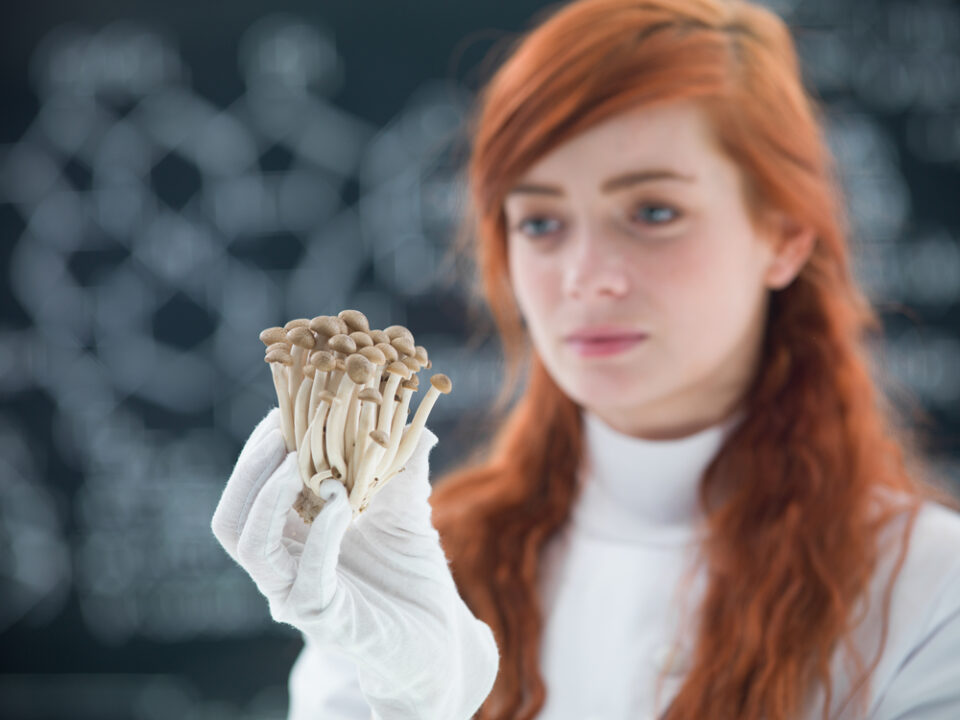Law & Regulation
Psilocybin study for bipolar depression encourages more research
Results for the small study were positive, but the bipolar population is at a higher risk of mania from psychedelic treatments.
The post Psilocybin study…

A study published by JAMA Psychiatry on bipolar disorder and psilocybin single-dose treatments is getting a lot of attention. The study was originally published on December 6, 2023.
It was a nonrandomized controlled trial of 15 individuals with bipolar II depression who received a single dose of 25 mg of synthetic psilocybin. Treatment options are limited for patients with BDII depression which prompted the study. Plus, studies have shown that psilocybin has been effective at treating depression.
The authors said, “To our knowledge, this nonrandomized controlled trial is the first prospective and systematic, albeit noncomparator, study reporting clinical experience with psilocybin dosing and psychotherapy in a cohort of individuals with BDII currently experiencing a major depressive episode.”
Study details
The article said that recruitment was via word of mouth and web listings on the Sheppard Pratt website and clinicaltrials.gov. Participants were aged 18 to 65 years, with a primary diagnosis of BDII disorder according to DSM-5 criteria and supported by medical records, clinical assessment, and completion of the Mini International Neuropsychiatric Interview version 7.0.2 by an experienced clinician. The patients also documented little benefit with at least 2 other treatments during depression cycles. Patients were required to have a current episode duration greater than three months.
The study said that psychotropic medications were discontinued at least two weeks before dosing. Therapists met with patients for three sessions during pretreatment, during the 8-hour dosing day, and for three integration sessions posttreatment.
The study found that most participants met remission criteria on the Montgomery-Åsberg Depression Rating Scale 3 weeks after a single 25-mg psilocybin dose, and most remained in remission 12 weeks postdose with no increase in mania/hypomania symptoms or suicidality.
Bipolar
The study noted that Bipolar II disorder (BDII) is a lifelong condition characterized by recurrent hypomanic and depressive episodes with a lifetime prevalence of at least 0.4% among adults. Despite treatment, the study said that patients with BDII are typically symptomatic most of the time, primarily experiencing protracted and difficult-to-treat periods of depression. The article stated, “Bipolar disorder has high mortality, as 30% of affected individuals attempt and 5% to 15% commit suicide. Historically, BDII was viewed as the lesser of the bipolar disorders due to the absence of florid mania. However, recent studies document that functional impact and risk of suicide are similar in BDI and BDII.”
The study was positive in that there have been concerns about bipolar patients and psychedelics and whether it could induce mania or suicidal ideation. Indeed, the study noted that there has been a lot of anecdotal talk about psychedelics causing more harm to bipolar patients by inducing manic episodes. The study authors said that paid close attention to this and didn’t observe these issues.
The article concluded by saying “The findings support further study of psychedelics in the BDII population. Consideration should be given as to whether administration of psilocybin affects the high risk of substance use disorders in the BD population. It is premature to extrapolate these data to the BDI population, who are at higher risk of mania and psychosis.”
The post Psilocybin study for bipolar depression encourages more research appeared first on Green Market Report.
research psychedelics psilocybin
-

 Law & Regulation1 week ago
Law & Regulation1 week agoClearmind signs agreement with Hebrew University for psychedelic compound rights
-

 Psychedelics1 week ago
Psychedelics1 week agoCybin Announces Publication of Research Manuscript in the Journal of Medicinal Chemistry
-

 Psilocybin1 week ago
Psilocybin1 week agoCalifornia advances bill for psychedelics centers
-

 Psilocybin4 days ago
Psilocybin4 days agoPassover Perspectives: Psychedelics, Moses, and the Burning Bush
-

 Psychedelics1 week ago
Psychedelics1 week agoPsychedelics Can Offer More Than Therapy On Its Own
-

 Psychedelics1 week ago
Psychedelics1 week agoRevive Therapeutics Announces FDA Acceptance of Meeting Request for Long COVID Diagnostic Product
-

 Psychedelics3 days ago
Psychedelics3 days agoAlgernon NeuroScience and the Centre for Human Drug Research to Present DMT Phase 1 Stroke Clinical Data at the Interdisciplinary Conference on Psychedelic Research June 6 – 8th, 2024
-

 Psychedelics4 days ago
Psychedelics4 days agoRevive Therapeutics Announces Type C Meeting Request Granted by FDA for Clinical Study of Bucillamine to Treat Long COVID








